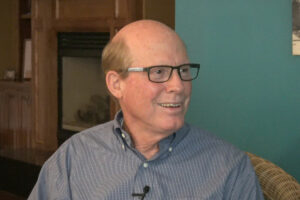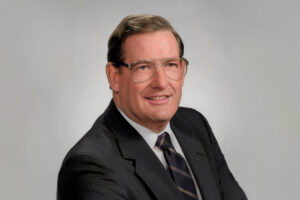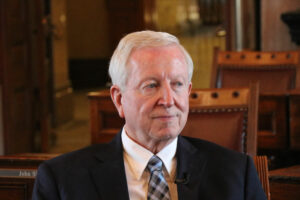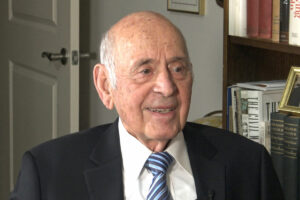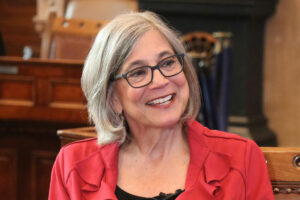Interview of Ken Grotewiel, December 5, 2019
Interviewed by Rex Buchanan
In this 2019 oral history interview, former Representative Ken Grotewiel recalls learning about the state and its urban/rural divide in addressing water issues. He found that these issues were not generally decided on a partisan basis. While representing Wichita in the Kansas House of Representatives, Grotewiel developed a good working relationship with Carl Dean Holmes, a Republican House member from western Kansas, especially on water issues, when they served together on the House Energy and Natural Resources Committee. Although Grotewiel had a reputation as a liberal environmentalist, he views his approach as that of a pragmatist. Among the Show Morewater issues addressed during his service in the House were purchasing storage in federal reservoirs that involved “minimum desirable stream flows,” irrigation, “water rights” that can affect streams, and the interbasin transfer of water. Grotewiel describes in some detail the challenges of passing legislation to fund the State Water Plan; legislation strongly opposed by farm groups and irrigators. He sites approval of water plan funding as an example of bipartisan cooperation and as the most significant accomplishment during his time in the Legislature. By the time he was appointed by Governor Sebelius to be Assistant Director of the Kansas Water Office in 2002, he noted considerable breakdown of civility in the Legislature. Among issues Grotewiel worked on during his service in the Water Office were use of federal money to purchase water rights along the Arkansas River and the purchase of land to protect the Equus Beds aquifer along with resisting the Legislature's diversion of Water Plan moneys for other purposes. Show Less

